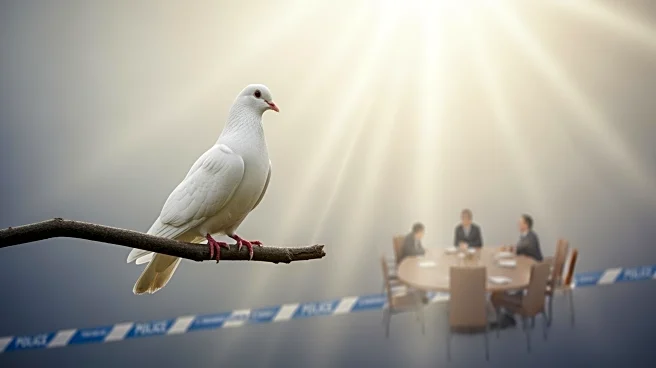What's Happening?
Zuli Giyungyushi, brother-in-law of murdered ynet photographer Roy Idan, has publicly demanded an apology from Prime Minister Benjamin Netanyahu. Giyungyushi, who is raising Idan's orphaned children, criticized
Netanyahu for not acknowledging his failure to protect the family during the October 7 massacre. Despite being a Likud supporter, Giyungyushi expressed disappointment in Netanyahu's lack of personal outreach, contrasting it with high-ranking officers who admitted their failure. The demand for an apology is framed as a call for accountability to the children left without parents.
Why It's Important?
The demand for an apology from Netanyahu highlights issues of accountability and leadership in the aftermath of the October 7 massacre. It reflects broader societal expectations for political leaders to acknowledge failures and provide support to affected families. The situation underscores the emotional and political impact of the conflict on Israeli citizens, potentially influencing public opinion and political discourse. Giyungyushi's criticism, despite his political affiliation, may resonate with others seeking accountability and transparency from government officials.
What's Next?
The public demand for an apology may pressure Netanyahu to address the issue, potentially impacting his political standing and public perception. The situation could lead to broader discussions on government accountability and support for victims' families. Political leaders may face increased scrutiny and calls for transparency in handling the aftermath of the conflict.
Beyond the Headlines
The demand for an apology raises ethical questions about leadership and responsibility in times of crisis. It highlights the personal impact of political decisions on individuals and families, emphasizing the need for compassionate governance. The situation may influence cultural attitudes towards political accountability and the role of government in supporting citizens during crises.










